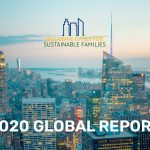All the videos and presentations will be shortly posted below

FOR ENTRY-LEVEL PROFESSIONALS AND POST-GRADUATE
STUDENTS OF SOCIAL SCIENCES
STUDENTS OF SOCIAL SCIENCES
ORGANIZED BY

IN PARTNERSHIP WITH

With representatives of the organizers and local partners.

A group of the in-person attendants, at the end of the first day.

During the session conducted by Rosa Martha Abascal and moderated by Fabiola Saul.

The organizers’ team from IFFD and Universidad Panamericana.

Countries where the online participants came from.
More than 500 students and young professionals from 39 countries and diverse cultural and academic backgrounds attended the past editions of the IFFD International Advocacy Workshop, together with a group of senior observers. This 10th year has been organized in a hybrid mode, with a limit of 100 active participants and no cost involved.
This course intends to critically assess the field of international human rights and development advocacy, its institutions, strategies, and key actors. It explores how domestic, regional, and global policy strategies are set. Also, it promotes discussion on various challenges that family-responsive advocates face together with a range of stakeholders, including academics, international institutions and the private sector.
The topics for this year dealt with the megatrends proposed by the United Nations for the preparations and celebration of the 30th Anniversary of the International Year of the Family in 2024 not included in last year’s edition and from a global perspective, so that the topics related to family advocacy during this troubled times and beyond them are fully covered.
PROGRAMME
| Day | Wednesday 31 | Thursday 1 | Friday 2 |
| Theme | Families and Migration |
Families and Demographic Shifts |
Families and Climate Change |
| Moderators |  Salvador Beltrán del Río Salvador Beltrán del RíoDirector for Advancement, Universidad Panamericana |
 Fabiola Saúl Fabiola SaúlProfessor and Researcher, Universidad Panamericana |
 Claudia Orozco Claudia OrozcoAcademic Coordinator of Family Sciences, Universidad Anáhuac |
| Opening Speech |
|
 Santiago Garcia Alvarez Santiago Garcia AlvarezRector Campus México, Universidad Panamericana |
 Renata Kaczmarska Renata KaczmarskaUnited Nations Dep. of Economic and Social Affairs, Focal Point on the Family |
| Lectures |  AFRICA AFRICAConfronting the challenges of migration Zitha Mokomane Associate Professor in Demography, Health and Society University of Pretoria (South Africa) |
 ASIA ASIATrends, options and research on elderly care Wei-Jun Jean Yeung Professor and Director of the Center for Family and Population Research National University of Singapore |
 EUROPE EUROPEShould we stop having children to save the planet? Emmanuel Pont Researcher on the relations among ecology, science and politics, blogger and author of a bestselling book (France) |
| International Interventions & Good Practices 1 |
 The Reception of The Reception ofUkrainian Refugees in Poland Sylwia Tubielewicz-Olejnik Director of International Cooperation Kujawsko-Pomorskie Regional Government |
 The Grandfamilies & Kinship The Grandfamilies & KinshipSupport Network Ana Beltran Director, T. A. Center on Grandfamilies & Kinship Families at Generations United |
 How can we help families How can we help familiesto be more climate conscious? Elizabeth Bechard Author and Senior Policy Analyst at Moms Clean Air Force |
| Local Interventions & Good Practices 2 |
 The Right to Family The Right to FamilyReunification in the Asylum Process Nicole Ramos Director of Al Otro Lado’s Border Rights Project |
 Family-Responsible Companies Family-Responsible CompaniesRosa Martha Abascal Vice President of Communications and Advocacy at Coparmex |
 The Intersection of Environment and Human Development The Intersection of Environment and Human DevelopmentCarlos Muñoz Pina Director for Research and Data Integrity, World Resources Institute |
| Outcomes & Facilitators |
Draft Advocacy Plan 1
|
Draft Advocacy Plan 2
|
Draft Advocacy Plan 3
|
WORK GUIDELINES FOR ACTIVE PARTICIPANTS
ACTIVE PARTICIPATION is available for the first 100 applications of students or young professionals. It implies acceptance of the following work guidelines and it will entitle to receive a diploma, provided they attend at least 85% of the sessions.
The rest of registered participants will still be able to attend the sessions in person or online, with no active participation.
OBJECTIVE
The main purpose of the Workshop is the elaboration of an ADVOCACY PLAN for each one of the three topics selected for the year.
In order to create a complete ADVOCACY PLAN, the following questions should be considered and answered for each topic along the day by participants:
1.- Establish measurable objectives.
2.- Define key messages.
3.- Determine the communication activities to deliver key messages.
4.- Decide what resources are necessary to complete each activity.
5.- Establish a timeline and responsible party for each activity.
6.- Fix how to evaluate whether you have reached your objectives.
METHOD OF WORK
There are THREE SESSIONS every day:
– Lectures
– Interventions & Good Practices
– Interactive Discussion
The two FIRST SESSIONS (Lectures and Interventions & Good Practices ) are divided into three parts:
– Interventions of the speakers (Zoom)
– Questions to speakers (Zoom)
– Inputs for the ADVOCACY PLAN (Slido)
The THIRD SESSION (Interactive Discussion) consists of:
– Presentation of a consolidated draft ADVOCACY PLAN upon ideas gathered from Slido by Facilitators and published in the Google Document for the day.
– Discussion and enrichment of the consolidated draft ADVOCACY PLAN by Participants.
– Elaboration of the outcome document of the topic for the day by the Moderator.
WHAT IS AN ADVOCACY PLAN?
Purpose
Getting powerful individuals or organizations to make big changes that may not be in their short-term interest, working in the public eye and standing for a cause that is worth the fight.
Find out ahead of time where the major difficulties may lie, and to avoid surprises. Clearly define the strategy goals and steps to achieve them. If there is no strategy it can end up in wasting valuable energy, miss some opportunities, perhaps even antagonize people you need to keep on your side.
Format
The ADVOCACY PLAN should not exceed 300 words.
RESOURCES
The starting point of each topic can be found in the following links:
Wed, August 31st:
Families and Migration.
Thu, September 1st:
Families and Demographic Shifts.
Fri, September 2nd:
Families and Climate Change.
EVALUATION & FOLLOW-UP
A CERTIFICATE issued by the organizers is provided to applicants who are accepted as active participants, upon attendance of at least 85% of the sessions. They will also be offered the opportunity to join the IFFD International Advocacy Network.
The rest of applicants or others interested can always attend in person or online, but only as mere observers.
MODERATORS
The role of the moderators is:
– Start and close every session.
Sessions 1-2:
– Introduce every speaker and thank him when they finish.
– Select 2-3 questions for every speaker and invite those who wrote them in the chatbox to open their cams and make them.
– Remind questions to be replied to in Slido and encourage to make inputs and vote the inputs of others.
Session 3:
– Give the floor to each facilitator to read and explain their draft proposal (4-5 mins. x 6 facilitators)
– Give the floor to participants for comments or suggestions to the draft proposal (1 min. each)
– Include the comments or suggestions to produce the Advocacy Plan as the final outcome of the day.
FACILITATORS
The role of the facilitators is:
After reading the background document for each day, every Facilitator has to:
– Write their inputs to the six points of the Advocacy Plan, before Monday 29th.
BACKGROUND DOCUMENTS
COORDINATORS
The role of the coordinators is:
After the facilitators have shared their inputs, the Coordinator has to:
– Make sure every one of the six points has some well-articulated replies before the Workshop starts on Wednesday 31st.
– Add any points he or she considers valuable during the three first sessions of the day (9.00-11.15 Mexico time).
– Present the draft text of the Advocacy Plan at the beginning of the last session (11.15-11.20).
– Take note of the suggestions by all participants made during the session (11.20-11.50).
– Read the final proposal of the Advocacy Plan (11.50-12.00).
The Advocacy Plan document will be shown on the screen during the last session, to facilitate attendees following the development of the Plan.




 Olivier Yao
Olivier Yao Diane Ngankam Yanou
Diane Ngankam Yanou Jaja Djau
Jaja Djau Jose Ricardo Araujo
Jose Ricardo Araujo


